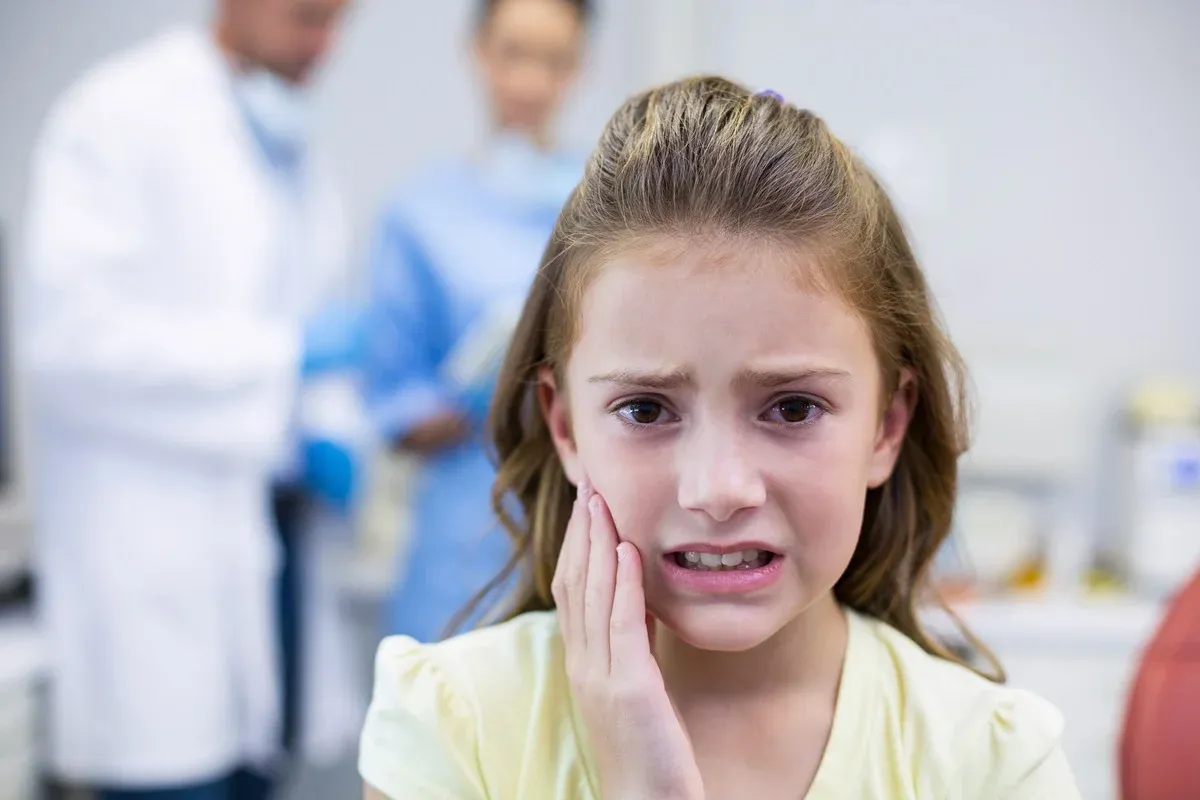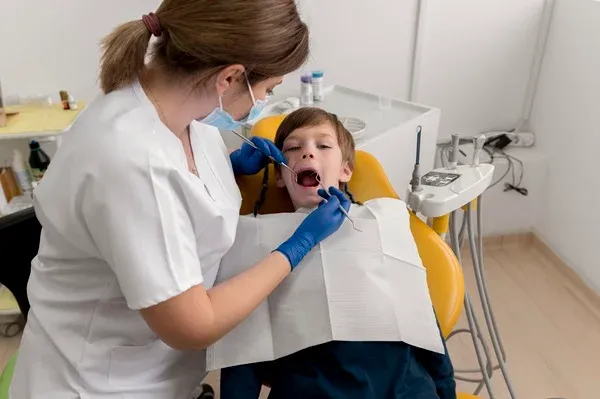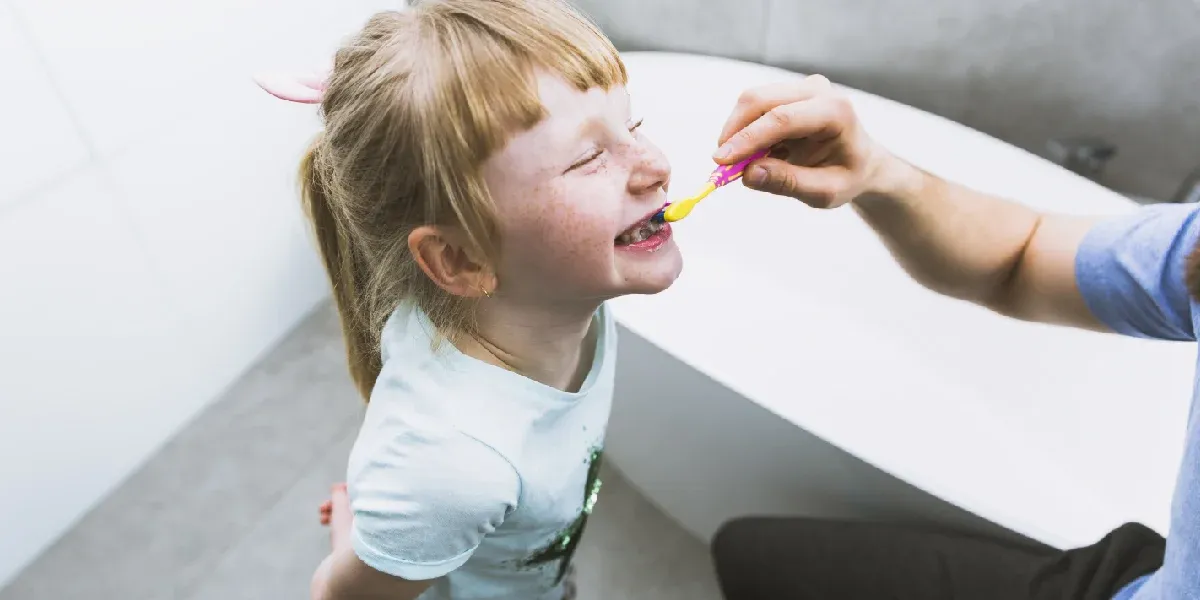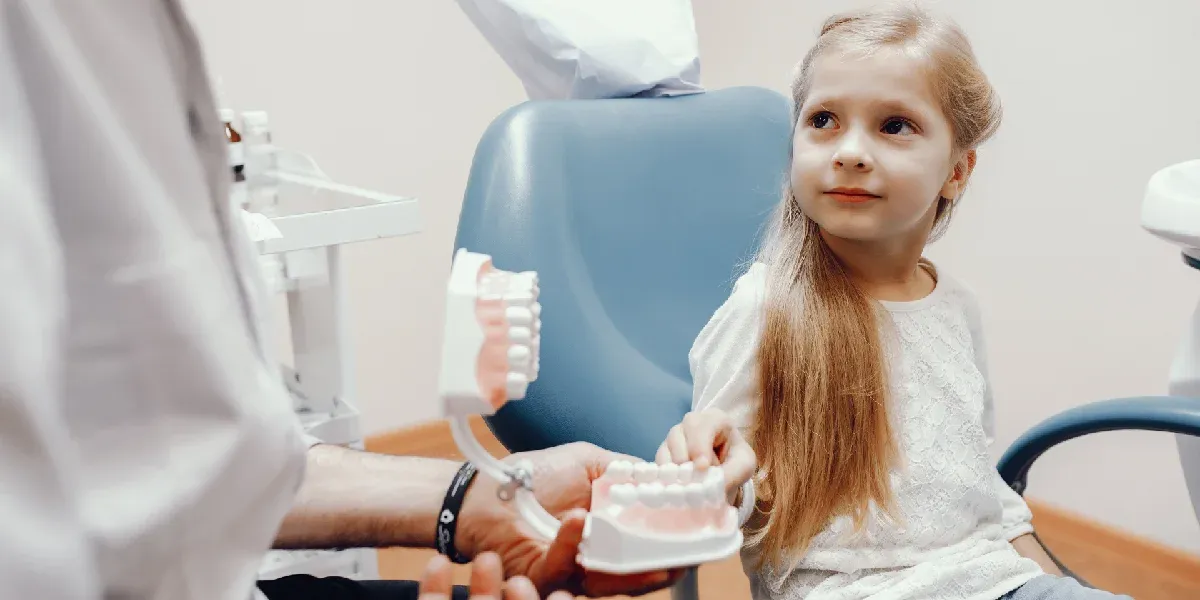
Preventing Common Dental Issues in Kids
Tips and Practices to Avoid Common Dental Problems in Children, Such as Cavities and Gum Issues
Ensuring your child's dental health is vital to their overall well-being. Establishing positive oral hygiene practices in early childhood is a preventive measure against common dental problems and lays the groundwork for a lifetime of dental wellness.
Dental problems can be not only painful but also disruptive to a child's daily activities, affecting their eating, speaking, and overall comfort. By prioritizing preventive measures, you can significantly reduce the risk of dental issues in your child.
The formative years of a child's life are crucial for fostering healthy teeth and gums. Routine dental check-ups offer a chance for early identification of potential dental issues. Dentists can pinpoint concerns like cavities, misalignment, and developmental problems, enabling timely interventions and averting more severe complications.
Children are susceptible to tooth decay, often caused by improper brushing, sugary diets, and inadequate dental care. Routine dental care, including brushing, flossing, and professional cleanings, significantly reduces the risk of tooth decay and cavities.
Prioritizing dental care for children is an investment in their overall health and future well-being. Cultivating positive oral hygiene habits from an early age contributes to developing robust and enduring teeth throughout life.
Dental problems like cavities, gum disease, or unaddressed tooth decay can result in considerable pain and discomfort, particularly in children. Painful dental problems may lead to difficulty eating, sleeping, and concentrating, impacting their overall quality of life. However, here we'll discuss some tips and practices to avoid such problems so your child can live a happy and healthy life. So, let's get started.
What are the most common dental issues in kids?
- Tooth Decay (Cavities): Cavities can spread untreated, causing pain, infections, and potential tooth loss. Globally, dental caries affects nearly 60-90% of school children, as reported by the World Health Organization (WHO).
- Gum Disease (Gingivitis): Gingivitis, an early-stage gum disease, can surge to more severe forms of periodontal disease, potentially leading to tooth loss and linked systemic health issues. In the United States, only 10% of children struggle with untreated cavities, requiring the urgency for early intervention and preventive measures.
- Misaligned Teeth (Malocclusion): Malocclusion can impact a child's bite, speech development, and oral health. It may create challenges in maintaining proper dental hygiene, elevating the risk of cavities and gum disease. Studies indicate that more children could benefit from orthodontic treatment to rectify malocclusion and its associated issues.
- Thumb-Sucking and Pacifier Habits: Prolonged thumb-sucking or pacifier use can cause an open bite, misalignment, and changes in the roof of the mouth. These habits may persist beyond infancy, leading to orthodontic challenges. However, some preschool-aged children exhibit persistent thumb-sucking habits, necessitating attention to avoid long-term consequences.

- Tooth Erosion: Tooth erosion, often caused by acidic foods and beverages, can lead to enamel wear and heightened tooth sensitivity. Untreated erosion may result in cavities and compromised tooth structure. Over 30% of adolescents have tooth erosion, according to a study.
- Dental Trauma: Dental trauma from accidents or sports injuries can cause chipped, broken, or knocked-out teeth. Immediate attention is crucial to save the tooth and prevent long-term issues. Dental injuries affect around 1 in 3 children, reinforcing the importance of using protective gear, such as mouthguards, during sports activities.
- Early Tooth Loss: Early tooth loss can affect the alignment of permanent teeth. Consequently, this disruption may necessitate orthodontic interventions later in life.
- Tongue Thrusting: Tongue thrusting, which involves pushing the tongue against the front teeth during swallowing, can cause orthodontic problems and misalignment. If addressed, it might contribute to speech difficulties therefore early intervention is crucial.
- Teething Discomfort: Teething can cause discomfort and irritability in infants and toddlers. Persistent pain may impact feeding and sleeping patterns. Teething affects all infants and requires appropriate teething aids and comfort measures.
- Dental Anxiety: Dental anxiety can lead to avoidance of dental care, resulting in untreated issues. Long-term consequences may include advanced dental problems and compromised oral health. Addressing dental anxiety is crucial for psychological well-being.
Practical Tips to Prevent Dental Issues in Children
To prevent common dental problems in children, such as cavities and gum disease, incorporate the following helpful tips and practices into their oral care routine:
- Start Early: Initiate oral care before the first tooth's emergence. After each feeding, gently wipe your baby's gums with a clean, damp cloth to eliminate bacteria and foster a healthy oral environment.
- Brushing Habits: Establish a routine of brushing your child's teeth at least twice daily. Select a soft-bristled toothbrush suitable for your child's age. For children under 3, apply a smear of fluoride toothpaste; for ages 3-6, use a pea-sized amount.
- Supervise Brushing: Supervise your child's brushing until they can do it effectively independently, usually around 7 or 8 years old. Ensure they brush for at least two minutes and reach all surfaces of their teeth.
- Teach Proper Technique: Demonstrate proper brushing techniques by emphasizing gentle circular motions and cleaning all areas of the mouth, including the tongue and gums.
- Flossing: When your child's teeth begin to touch, introduce flossing into their oral care routine. Teach them the proper technique and encourage them to make it a regular part of their oral hygiene habits. Flossing helps maintain healthy gums and prevents issues between teeth.
- Limit Sugar Intake: Reduce the consumption of sugary snacks and beverages. Opt for healthier alternatives and reserve sugary treats for special occasions.
- Encourage Water Consumption: Water helps rinse away food particles and neutralize acids in the mouth. Encourage your child to drink water, especially after consuming sugary or acidic foods.
- Healthy Diet: Promote a well-balanced diet incorporating plenty of fruits, vegetables, and dairy products. These nutrient-rich foods provide essential elements crucial for preserving robust teeth and promoting the well-being of gums, contributing to overall oral health.
- Regular Dental Check-ups: Schedule regular dental check-ups, starting around the age of one or when the first tooth appears. Routine dental check-ups are crucial for detecting potential issues early and maintaining optimal oral health with professional cleaning.

- Fluoride Treatment: Consult your dentist regarding fluoride treatments, a proactive measure to strengthen enamel and prevent cavities. Your dentist can recommend suitable fluoride products or treatments tailored to your child's needs.
- Dental Sealants: Consider dental sealants for molars as they create a protective barrier and reduce the risk of cavities by preventing bacteria and food particles from entering.
- Discourage Thumb-Sucking: To discourage thumb-sucking, emphasize the potential dental issues it may cause. Encourage your child to cease this habit, and if necessary, seek guidance from your dentist for effective strategies.
- Lead by Example: Lead by example in promoting good oral hygiene habits. Demonstrate proper care of your teeth, making oral hygiene a positive and shared family activity. Children will likely adopt these habits when they see them consistently practiced within the family.
- Educate About Gum Health: Teach your child about the importance of gum health. Explain gum disease prevention by proper brushing, flossing, and regular dental check-ups.
"Prevention is the superhero in the battle against common dental problems. Arm your child's smile with daily care and watch it shine."
Final Thoughts
Incorporating these practical tips into your child's routine will foster the development of strong oral hygiene habits, ensuring a lifetime of healthy smiles. Take the first step towards your child's dental well-being - start implementing these tips today! Regular communication with your dentist is essential for personalized guidance and early intervention. Schedule a check-up now to set your child on the path to lasting oral health. Act now for a brighter, cavity-free future!
Contact your kids' dentist in Stockton, Dr. Sajjad Rizvi, D.D.S. at Happy Kids Dental, to learn about Preventing Common Dental Issues in Kids.
Resource:
*This media/content or any other on this website does not prescribe, recommend, or prevent any treatment or procedure. Therefore, we highly recommend that you get the advice of a qualified dentist or other medical practitioners regarding your specific dental condition*
Subscribe To Our Newsletter
Get Updates And Learn From The Best


